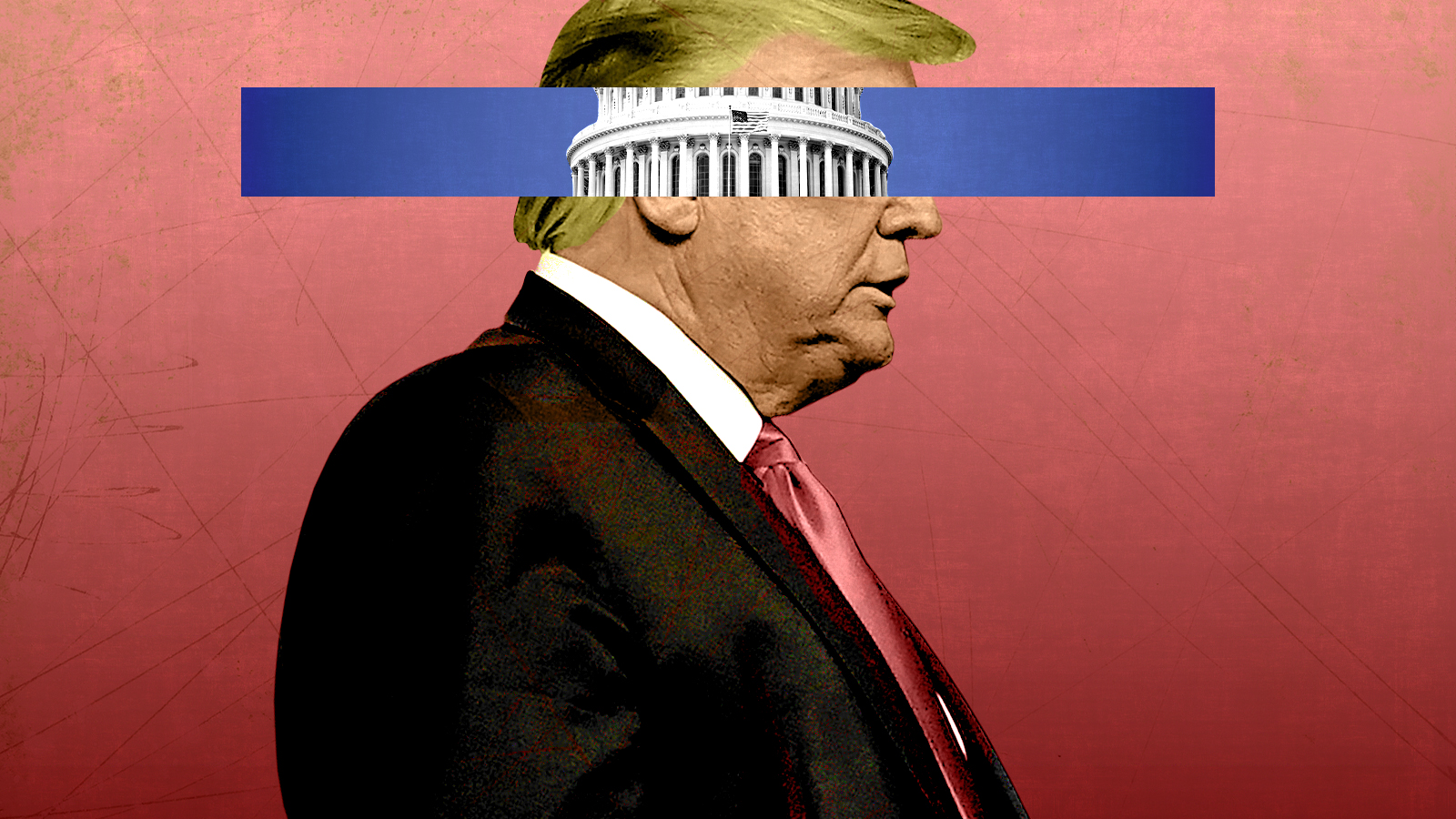How to actually fix America's election problem


A free daily email with the biggest news stories of the day – and the best features from TheWeek.com
You are now subscribed
Your newsletter sign-up was successful
President Biden traveled to Georgia on Tuesday to deliver what The Washington Post teased would be a "hard-hitting speech on voting rights" and the need for Congress to pass sweeping legislation to shore them up. But back in Washington, Senate Democrats appeared close to completing a more focused election-reform bill that could do far more good than the president's rhetorical call to arms.
Introduced by Sens. Angus King (I-Maine), Dick Durbin (D-Ill.), Amy Klobuchar (D-Minn.), and possibly others to come, the bill would revise the Electoral Count Act of 1887. Former President Donald Trump's efforts to keep himself in office despite losing the 2020 election were made possible by exploiting ambiguities in the text of the ECA. According to Greg Sargent's reporting in the Post, the new bill would seek to eliminate those ambiguities as they relate to three aspects of counting and certifying electoral votes.
To begin with, the bill would establish a new form of judicial review aimed at preventing states from nominating rogue slates of electors that diverge from the state's pre-existing rules for choosing electors. (A Republican state legislature or governor might seek to do this if a Democrat narrowly prevailed in the state's popular vote.)
The Week
Escape your echo chamber. Get the facts behind the news, plus analysis from multiple perspectives.

Sign up for The Week's Free Newsletters
From our morning news briefing to a weekly Good News Newsletter, get the best of The Week delivered directly to your inbox.
From our morning news briefing to a weekly Good News Newsletter, get the best of The Week delivered directly to your inbox.
The bill would also seek to prevent Congress from objecting to valid slates of electors or certifying phony ones. It would accomplish the first goal by increasing the number of members required to raise objections; it would accomplish the second by requiring supermajorities to sustain them.
Finally, the bill would clarify that the vice president has no power to decree whether electors will be counted. (Trump repeatedly pressured his vice president, Mike Pence, to do precisely that.)
Of course, no bill can guarantee that elected and appointed officials will refrain from attempting to subvert the outcome of elections in novel ways. With the country deeply and narrowly divided and increasing numbers of people in both parties considering a victory by the other side an existential threat that's inherently illegitimate, we seem fated to endure rocky elections for the foreseeable future.
But the bill taking shape in the Senate is far better than none at all. The question is whether 10 Republican senators can be persuaded to support it. At the moment, only four appear willing to entertain doing so. Can six more be found to strengthen the country's electoral system?
A free daily email with the biggest news stories of the day – and the best features from TheWeek.com
If not, that would be pretty powerful evidence of how vulnerable the system truly is.
Damon Linker is a senior correspondent at TheWeek.com. He is also a former contributing editor at The New Republic and the author of The Theocons and The Religious Test.
-
 What is the endgame in the DHS shutdown?
What is the endgame in the DHS shutdown?Today’s Big Question Democrats want to rein in ICE’s immigration crackdown
-
 ‘Poor time management isn’t just an inconvenience’
‘Poor time management isn’t just an inconvenience’Instant Opinion Opinion, comment and editorials of the day
-
 Bad Bunny’s Super Bowl: A win for unity
Bad Bunny’s Super Bowl: A win for unityFeature The global superstar's halftime show was a celebration for everyone to enjoy
-
 Epstein files topple law CEO, roil UK government
Epstein files topple law CEO, roil UK governmentSpeed Read Peter Mandelson, Britain’s former ambassador to the US, is caught up in the scandal
-
 Iran and US prepare to meet after skirmishes
Iran and US prepare to meet after skirmishesSpeed Read The incident comes amid heightened tensions in the Middle East
-
 Israel retrieves final hostage’s body from Gaza
Israel retrieves final hostage’s body from GazaSpeed Read The 24-year-old police officer was killed during the initial Hamas attack
-
 China’s Xi targets top general in growing purge
China’s Xi targets top general in growing purgeSpeed Read Zhang Youxia is being investigated over ‘grave violations’ of the law
-
 Panama and Canada are negotiating over a crucial copper mine
Panama and Canada are negotiating over a crucial copper mineIn the Spotlight Panama is set to make a final decision on the mine this summer
-
 Why Greenland’s natural resources are nearly impossible to mine
Why Greenland’s natural resources are nearly impossible to mineThe Explainer The country’s natural landscape makes the task extremely difficult
-
 Iran cuts internet as protests escalate
Iran cuts internet as protests escalateSpeed Reada Government buildings across the country have been set on fire
-
 US nabs ‘shadow’ tanker claimed by Russia
US nabs ‘shadow’ tanker claimed by RussiaSpeed Read The ship was one of two vessels seized by the US military
